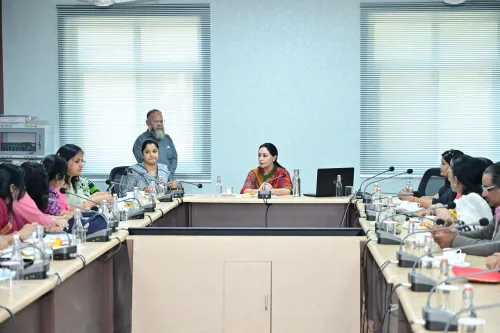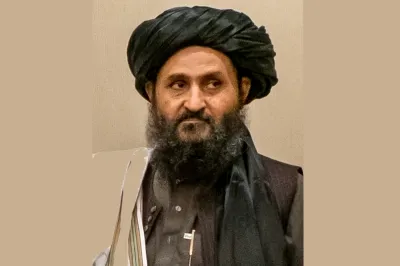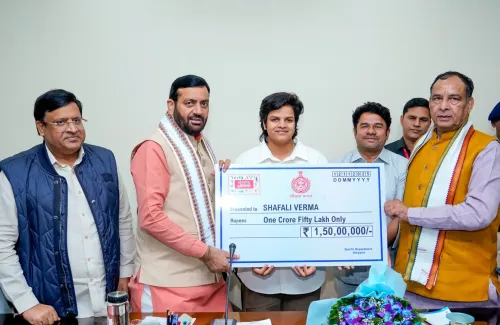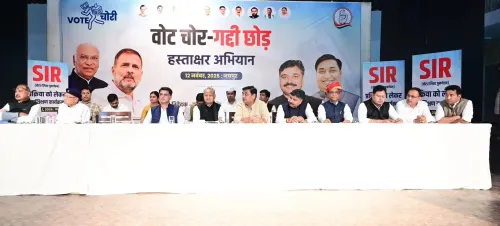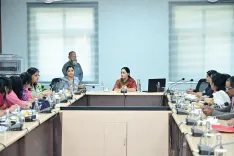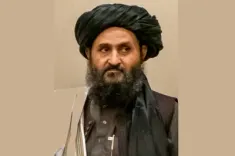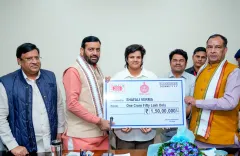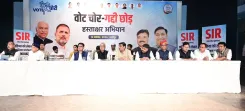Karnataka HC Lifts Stay on SIT Investigation Against Activists in Dharmasthala Case?
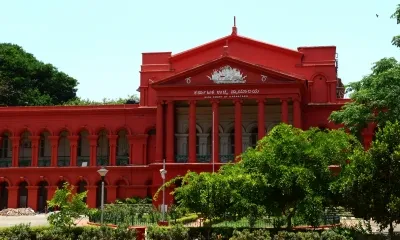
Synopsis
Key Takeaways
- Karnataka High Court lifted the stay on the SIT probe.
- The investigation focuses on allegations of mass killings.
- Concerns of harassment and political motives have surfaced.
- Complainant Chinnayya made serious allegations regarding victims.
- Ongoing scrutiny of the investigation process is essential.
Bengaluru, Nov 12 (NationPress) In a significant turn of events in the highly publicized Dharmasthala case, the Karnataka High Court has on Wednesday removed the stay on the investigation conducted by the Special Investigation Team (SIT) concerning the activists involved.
A bench led by Justice Mohammad Nawaz instructed the SIT to refrain from 'harassing' the activists during the inquiry process.
Previously, on October 30, the court had imposed a stay on the investigation, prohibiting the SIT from taking any action against the activists Girish Mattennavar, Mahesh Shetty Timarody, Vittal Gowda, and T. Jayath, who led protests against the temple authorities, accusing them of orchestrating mass killings.
The activists have also initiated a petition in the High Court to dismiss the FIR and the ongoing investigation against them.
During the proceedings, SIT's Special Public Prosecutor (SPP) B. N. Jagadeesh informed the court that the investigation was conducted with the magistrate's approval.
He highlighted that the activists had previously commended the SIT's efforts.
The activists' counsel, S. Balan, countered that the petitioners had faced nine notices and were subjected to repeated interrogations.
The petitioners have been named in the FIR, and the notices were sent via WhatsApp, rather than delivered in person, he noted.
He argued that the petitioners are neither suspects nor witnesses in the case and that the issuance of notices stems from political, religious, and organizational conflicts.
'In the guise of inquiry, they are being made to endure questioning from dawn until dusk. Over 150 hours of questioning have already occurred. Initially, an FIR was filed under Section 211(a), with additional sections added later,' Balan remarked.
On the other hand, SPP B.N. Jagadeesh contended that the complaint from Chinnayya, known as the 'masked man,' was instigated by the petitioners.
He further informed the court that excavations and inspections had taken place at 20 locations within Dharmasthala village, and notices were served after the petitioners were implicated in the case.
After the initial notice was issued, the petitioners 'failed' to appear, prompting a new notice under the same section, he added.
Following arguments from both parties, the bench of Justice Mohammad Nawaz had previously ordered a stay on the investigation until November 12.
Notably, on July 11, complainant Chinnayya alleged in court that he had been coerced into burying the bodies of women and girls who were raped and murdered in Dharmasthala.
He requested that the bodies be exhumed in his presence and claimed that the victims exhibited clear signs of sexual assault.
The whistleblower reportedly provided a skull, allegedly retrieved from one of the burial sites, to the SIT.
State Home Minister G. Parameshwara also confirmed the recovery of a skull.
However, later, the SIT arrested the unidentified complainant-cum-mask man Chinnayya on charges of disseminating false information.

